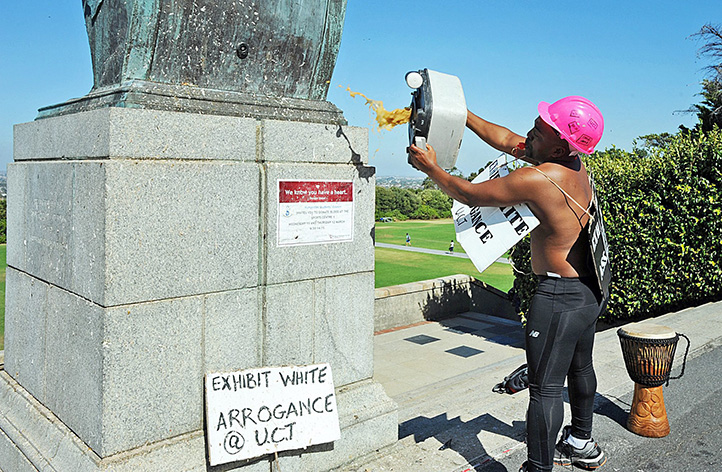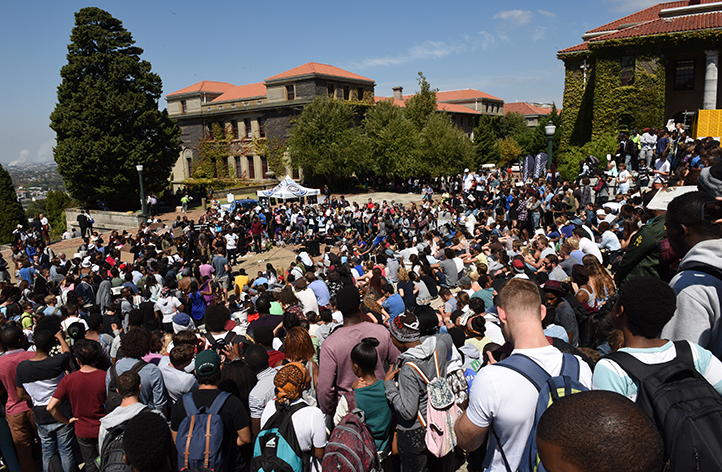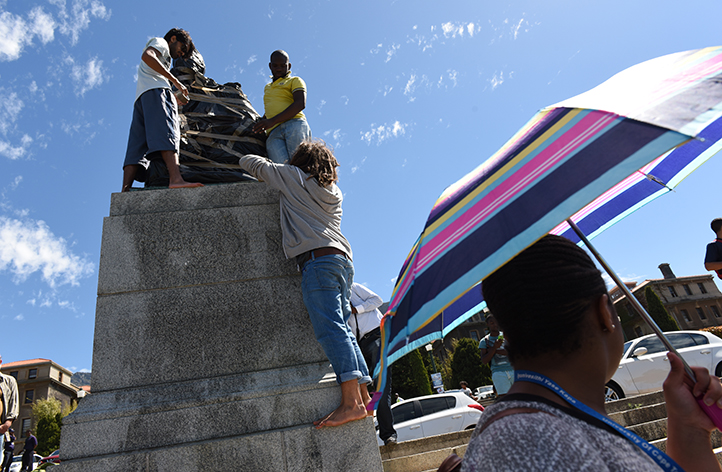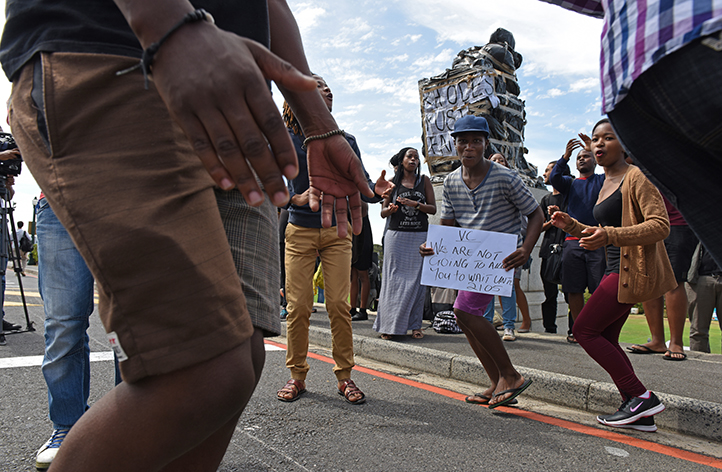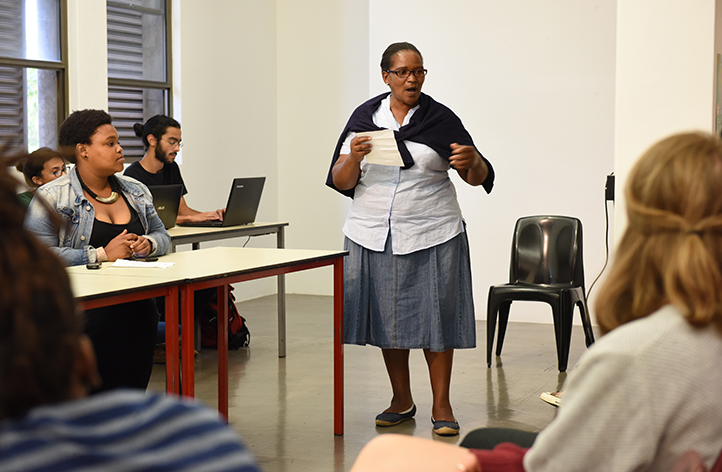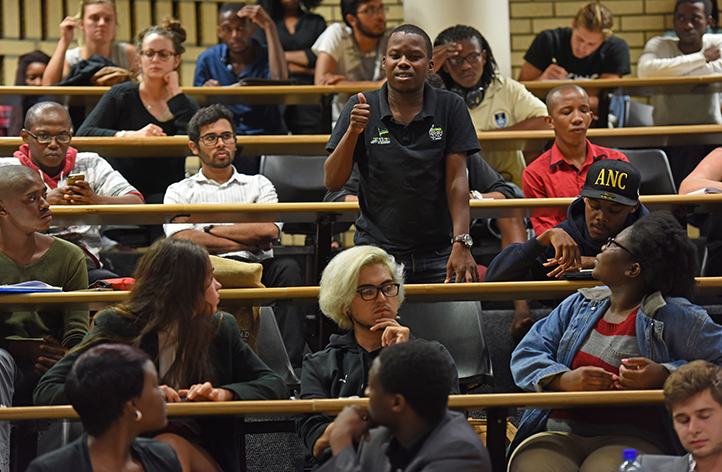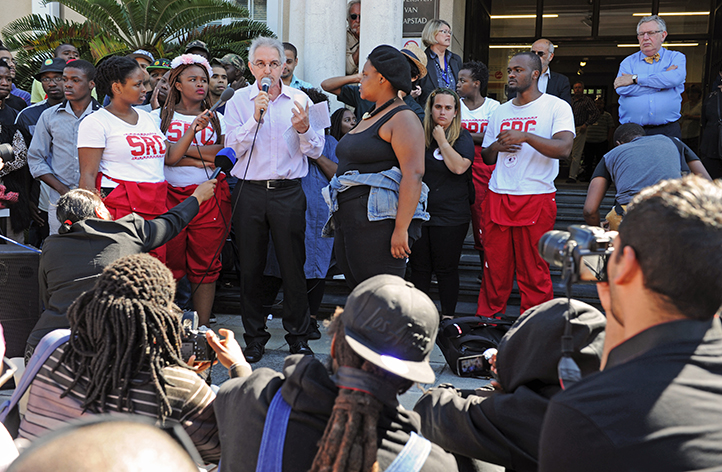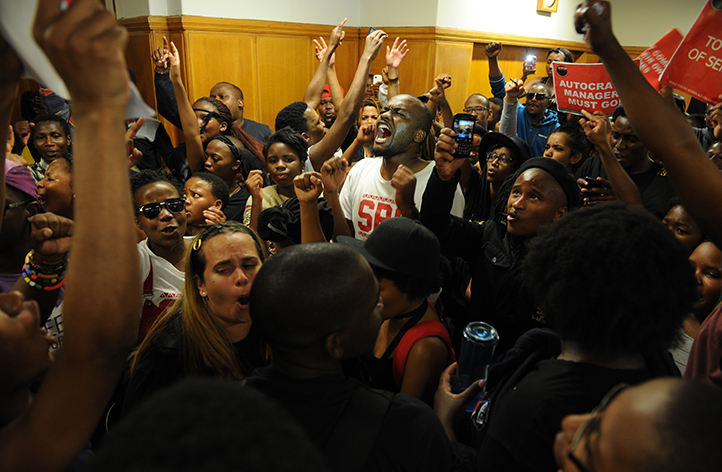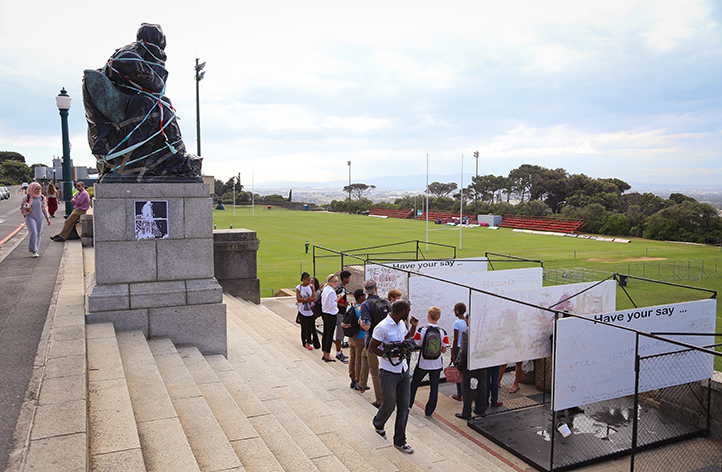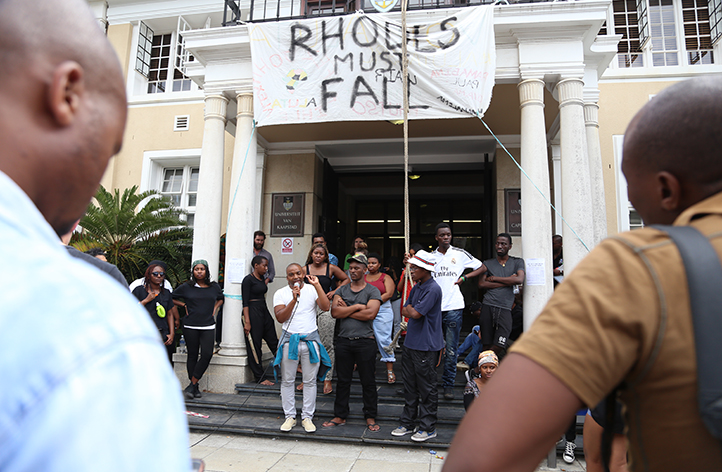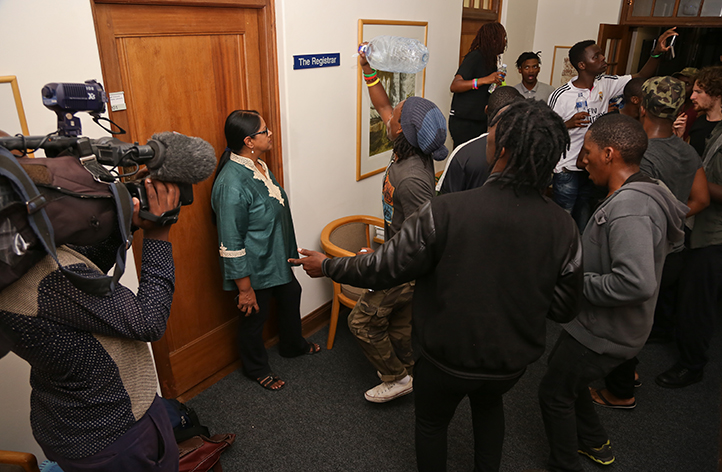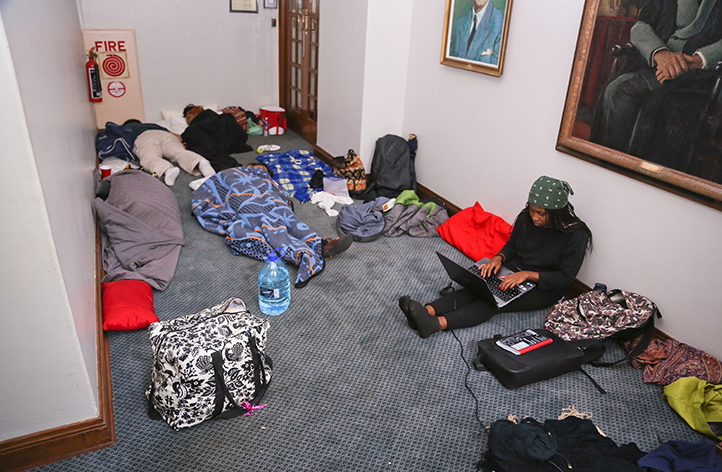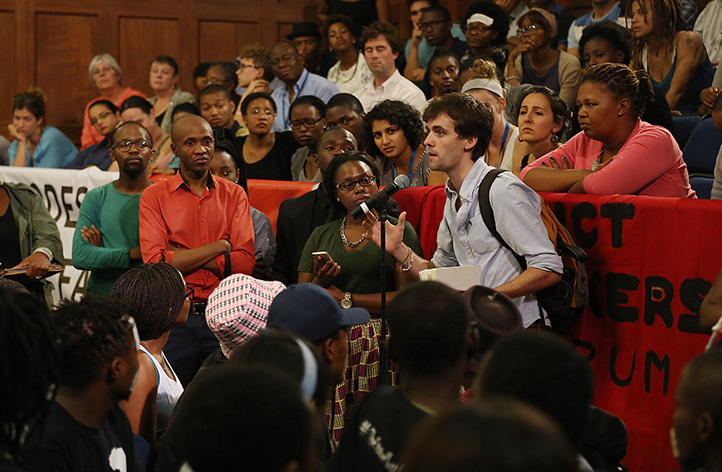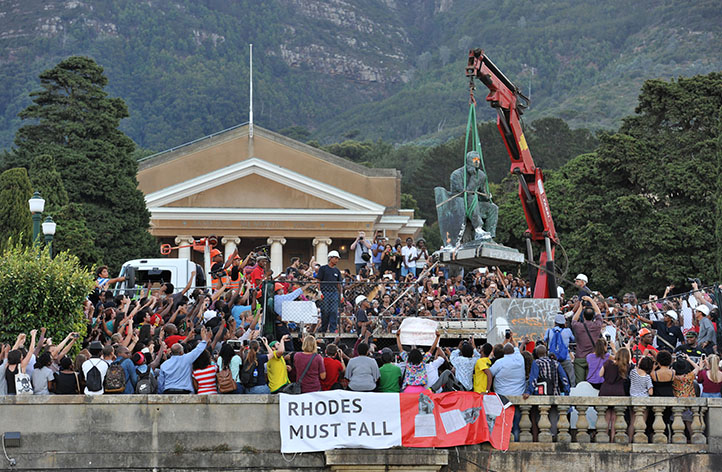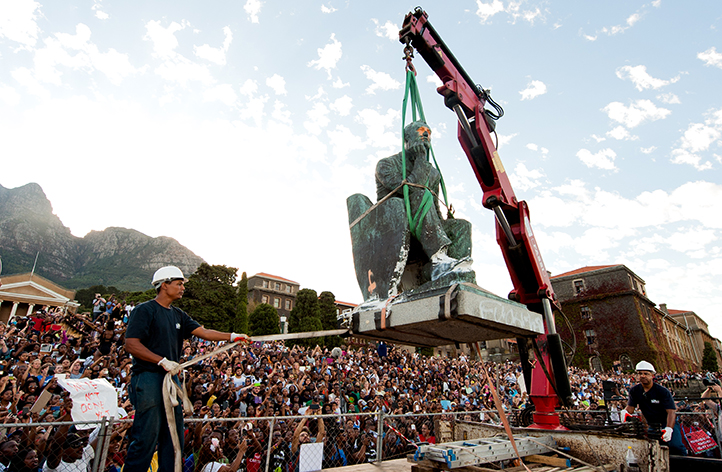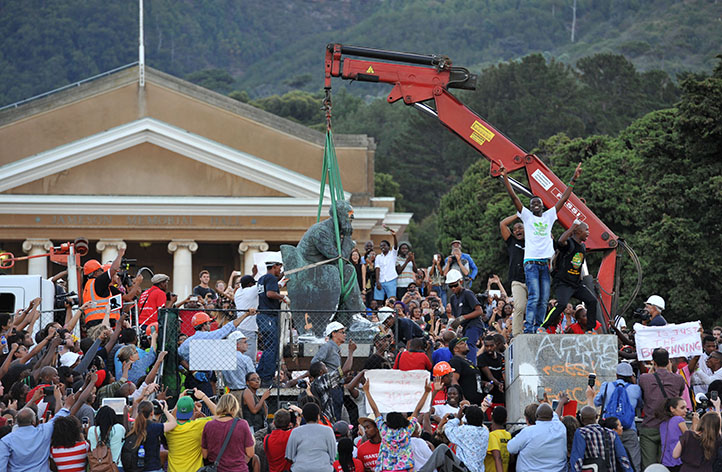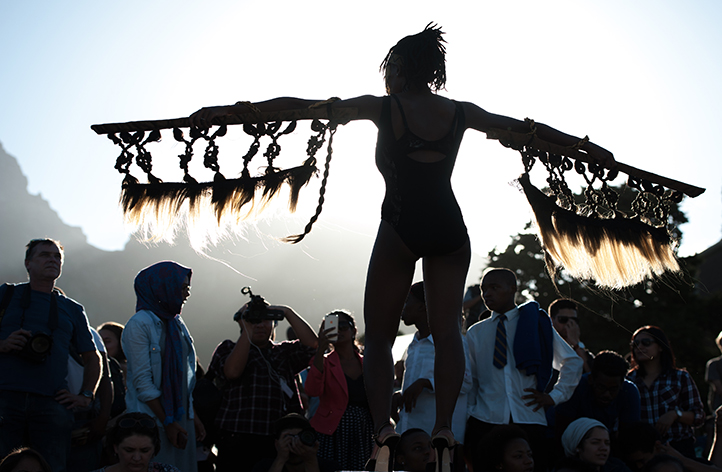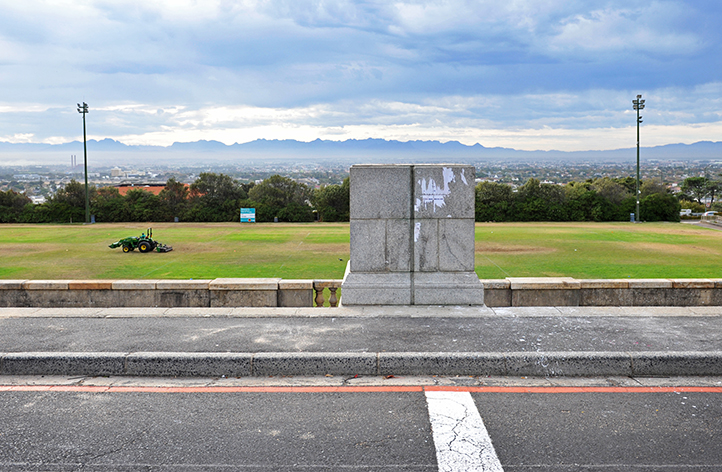Black academics support #RhodesMustFall campaign
24 March 2015 | Photo Michael Hammond.
TransformUCT, a grouping of black academics from different departments and faculties at UCT, stands in solidarity with students in the #RhodesMustFall campaign and the removal of the statue.
As a group of black academics at the University of Cape Town we stand in solidarity with students in the #RhodesMustFall campaign and the removal of the statue. United under the banner of TransformUCT, we came together through shared experiences to rebuild a UCT that prioritises our knowledge and capabilities and restores our dignity as black scholars. This particular campaign comes out of a long history of engagement by students and staff with the university administration around transformation at the University of Cape Town. Together with the students, we say that #RhodesMustFall is a non-negotiable prelude to tackling issues of institutionalised racism at UCT.
The Rhodes statue on Jammie steps is a key sign of the larger symbolic landscape of the university's failure to transform that include: the artifacts and names allocated to space across our campuses; the underrepresentation and under-valuing of black academic staff at all levels; the offensive discourse around standards and performance; and curricula that largely disregard African knowledges and practice in all their complexity. All of this contributes to an alienating institutional culture for black staff and students across the institution. We see these as key areas on which the university must focus in order to advance real transformation.
In response to the campaign, the university has called for broader stakeholder engagement through dialogues and seminars. However, the proposed mode of engagement and resolution activates the old bifurcation of the emotive and the rational that emerged in the service of conquest and colonisation. From the Cape to Cairo, there is the shadow of Rhodes's "equal rights for all civilized men south of the Zambezi".
The discourse around the student-led protests has included language about "unreasonable" and "uncivilised" behaviour and racial epithets have been used in reference to the students. This reason/emotion binary has a long colonial history where protest and anger at injustice are implicitly coded in gendered and racialised ways to dismiss legitimate critique. The statue, other symbols on campus, and the general response to this movement speak to the racist and violent history of Rhodes, his image, and our institution. Anger, protest and resistance are appropriate responses to this racist history. To frame the anger of black students as inappropriate is to dismiss and deflect from the deep structural injustices that continue at this institution, which "reasoned debate" to the extent that it has happened, has not successfully addressed.
Taking down the statue will signify that the era of talk without action is over. So much mistrust has been brought about by endless seminars and debates because not enough has changed since 1994. This moment also provides us with an opportunity to rethink our relationship to this city and all its residents. If as a university community we do not take this statue down and begin earnest conversations and structural changes toward symbolic and material transformation we will not arrest the breakdown of trust that the protest and the ensuing occupation represent. Our legacy will be determined by the actions we take today on this issue.
Statement by TransformUCT
 This work is licensed under a Creative Commons Attribution-NoDerivatives 4.0 International License.
This work is licensed under a Creative Commons Attribution-NoDerivatives 4.0 International License.
Please view the republishing articles page for more information.
#RMF Scholarship Fund and Public Lecture
Following an initiative of the Rhodes Must Fall (RMF) Scholarship Committee as proposed by student activists at the University of Cape Town, the university has launched the #RMF Scholarship Fund and hosted an RMF public lecture on 9 April 2021. The lecture will be hosted annually hereafter.
The Rhodes Must Fall Scholarship Fund is a new initiative that aims to raise funding to support students engaged in scholarship around the decolonisation of higher education.
Looking back to 2015
Removing Rhodes: a photo essay from April 2015
After one month of rolling protests about UCT’s colonial symbols and heritage, and calls for greater transformation, the statue of Cecil John Rhodes was removed from campus on 9 April 2015. We looked at the events leading up to its removal through a photographer’s lens.


















